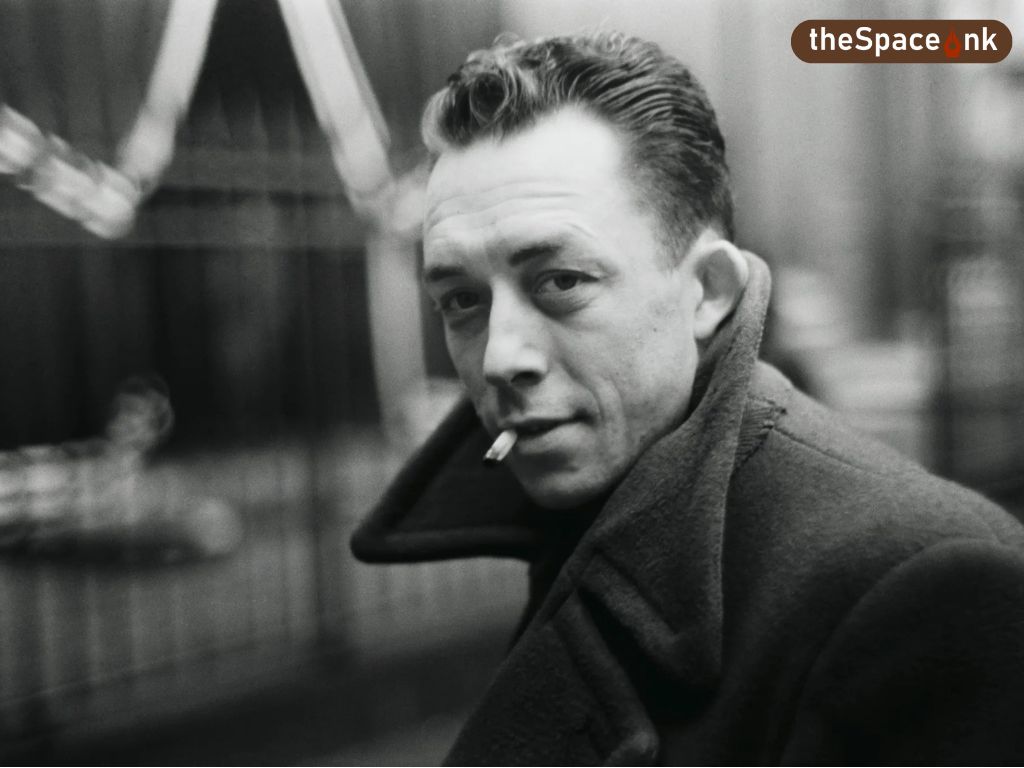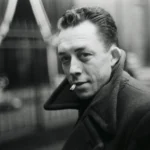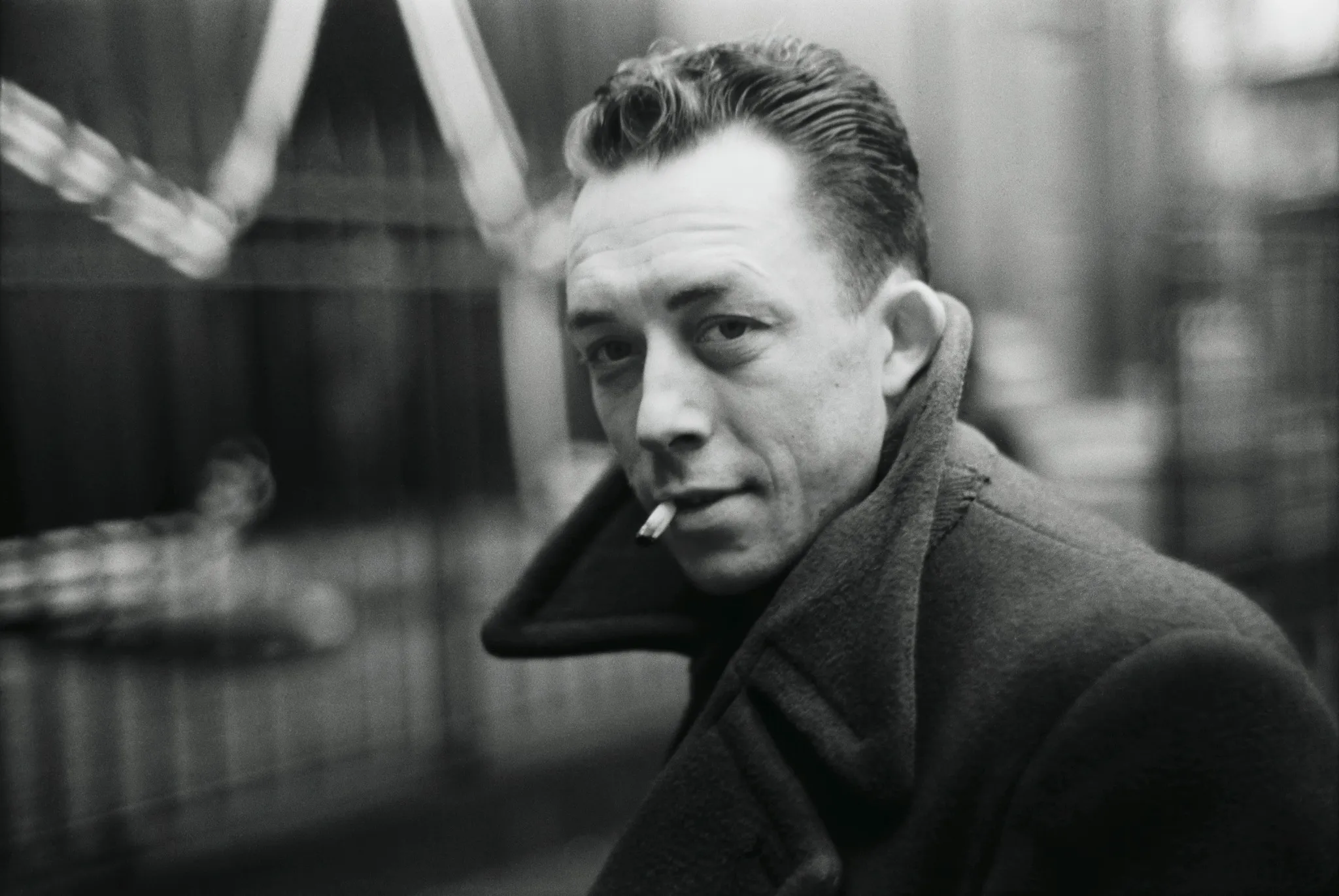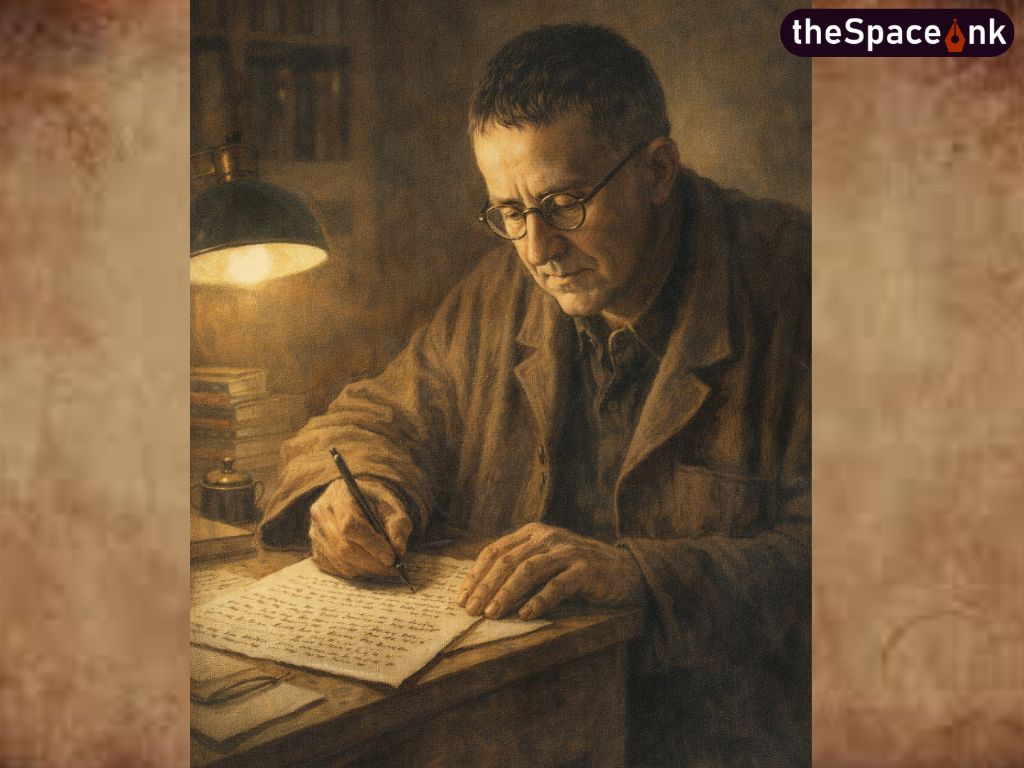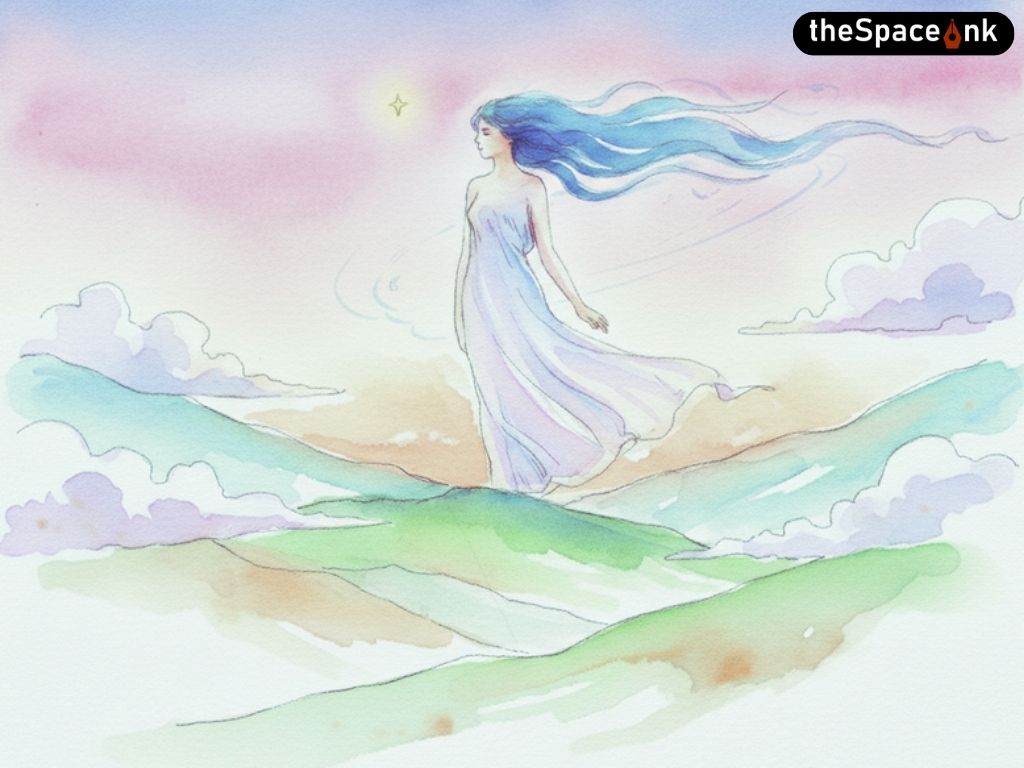(Albert Camus)
Albert Camus (1913–1960)
He was a French-Algerian writer and philosopher known for exploring absurdism and human morality. His works include The Stranger and The Plague. He received the 1957 Nobel Prize in Literature for his profound humanist vision.
“I don’t think so. But you can never be sure.” “Why did he kill?”
“A family squabble, I think one owned the other grain, it seems. It’s not all clear. In short, he killed his cousin with a billhook. You know, like a sheep, kreeck!” (Albert Camus)
Balducci made the gesture of drawing a blade across his throat and the Arab, his attention attracted, watched him with a sort of anxiety. Dam felt a sudden wrath against the mall, against all men with their rotten spite, their tireless hates, their blood lust. (Albert Camus)
Also Read: The Guest: (Part-1)
But the kettle was singing on the stove. He sened Balducci more tea hesitated, then served the Arab again, who, a second time, drank avidly his raised arms made the jellaba fall open and the schoolmastcr saw his thin, muscular chest. (Albert Camus)
“Thanks, kid,” Balducci said. “And now, I’m off.”
He got up and went toward the Arab, taking a small rope from his pocket. “What are you doing?” Daru asked dryly.
Balducci, disconcerted, showed him the rope. “Don’t bother.”
The old gendarme hesitated. “It’s up to you. Of course, you are armed?” “I have my shotgun.”
“Where?”
“In the trunk.”
“You ought to have it near your bed.” “Why? I have nothing to fear.”
“You’re crazy, son. If there’s an uprising, no one is safe, we’re all in the same boat.” “I’ll defend myself. I’ll have time to see them coming.” (Albert Camus)
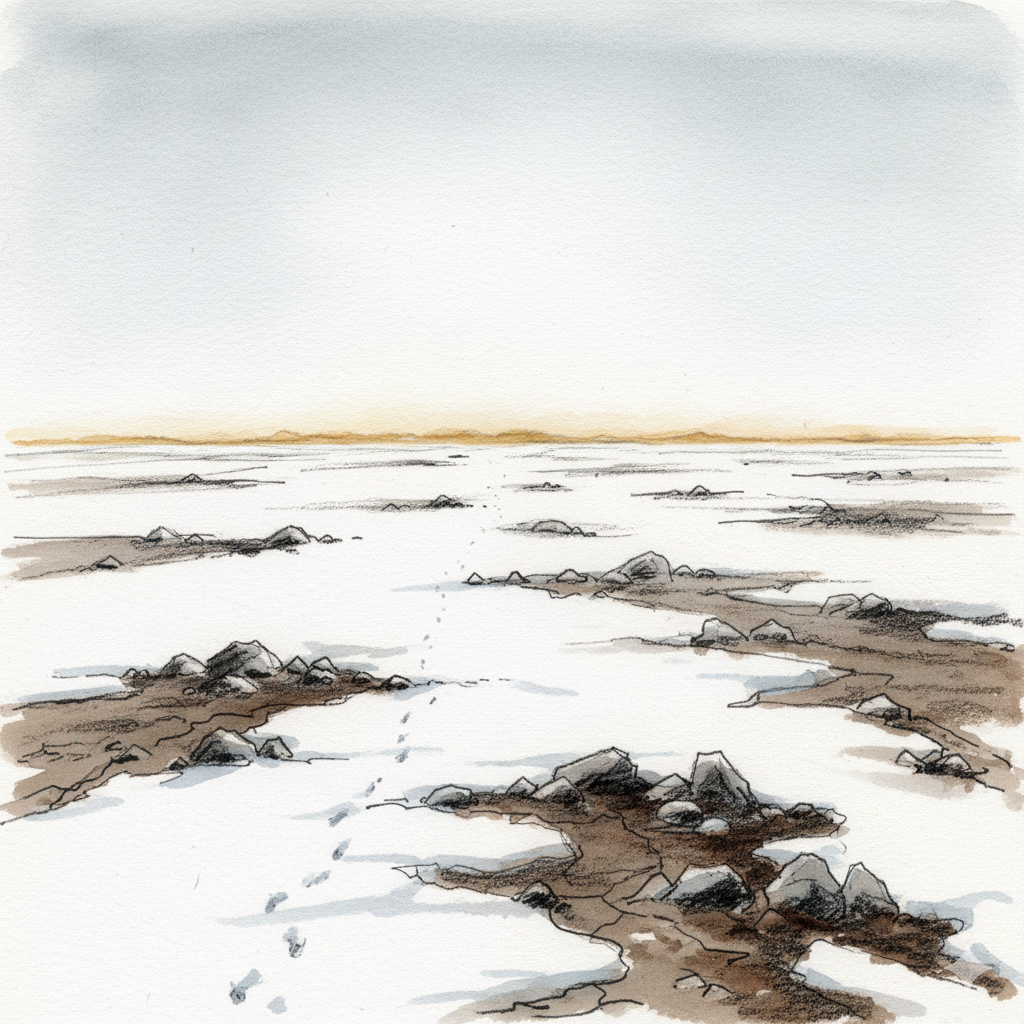
Balducci began to laugh, then suddenly the mustache covered the white teeth. “You’ll have time? O.K. That’s just what I was saying. You have always been a little cracked. That’s why I like you, my son was like that.” (Albert Camus)
At the same time he took out his revolver and put it on the desk. “Keep it; I don’t need two weapons from here to El Ameur.” (Albert Camus)
“You’re being a fool,” he said slowly. “I don’t like it either. You don’t get used to putting a rope on a man even after vears of it, and you’re even ashamed. But you can’t let them have their way.”
The revolver shone against the black paint of the table. When the gendarme turned toward him, the schoolmastcr caught the smell of leather and horseflesh. “Listen, Balducci,” Daru said suddenly, “every bit of this disgusts me, and first of all your fellow here. But I won’t hand him over. Fight, yes, if I have to. But not that.” (Albert Camus)
The old gendarme stood in front of him and looked at him severely.
“You’re being a fool,” he said slowly. “I don’t like it either. You don’t get used to putting a rope on a man even after vears of it, and you’re even ashamed. But you can’t let them have their way.”
“I won’t hand him over,” Daru said again. “It’s an order, son, and I repeat it.”
“That’s right. Repeat to them what l’ve said to you: I won’t hand him over.”
Balducci made a visible effort to reflect. He looked at the Arab and at Daru. At last he decided. (Albert Camus)
“No, I won’t tell them anything. If you want to drop us, go ahead. I’ll not denounce you. I have an order to deliver the prisoner and I’m doing so. And now you’ll just sign this paper for me.”
“There’s no need. I’ll not deny that you left him with me.”
“Don’t be mean with me. I know you’ll tell the truth. You’re from hereabouts and you are a man. But you must sign, that’s the rule.” (Albert Camus)
Daru opened his drawer, took out a little square bottle of purple ink, the red wooden penholder with the “sergeant-major” pen he used for making models of penmanship, and signed. The gendarme carfully folded the paper and put it into his wallet. Then he moved toward the door.
“I’ll see you off,” Daru said.
“No,” said Balducci. “There’s no use being polite. You insulted me.” (Albert Camus)
“The horse stirred on the other side of the wall and several chickens fluttered in fright. A moment later Balducci reappeared outside the window leading the horse by the bridle.”
He looked at the Arab, motionless in the same spot, sniffed peevishly, and turned away toward the door. “Good-by, son,” he said. The door shut behind him. Balducci appeared suddenly outside the window and then disappeared. His footsteps were muffled by the snow. The horse stirred on the other side of the wall and several chickens fluttered in fright. A moment later Balducci reappeared outside the window leading the horse by the bridle. He walked toward the little rise without turning around and disappeared from sight with the horse following him. A big stone could be heard bouncing down. Daru walked back toward the prisoner, who, without stirring, never took his eyes off him. (Albert Camus)
“Wait,” the schoolmaster said in Arabic and went toward the bedroom. As he was going through the door, he had a second thought, went to the desk, took the revolver, and stuck it in his pocket. Then, without looking back, he went into his room. (Albert Camus)

For some time he lay on his couch watching the sky gradually close over, listening to the silence. It was this silence that had seemed painful to him during the first days here, after the war. He had requested a post in the little town at the base of the foothills separating the upper platueas from the desert. There, rocky walls, green and black to the north, pink and lavender to the south, marked the frontier of eternal summer. He had been named to a post farther north, on the plateau itself. In the beginning, the solitude and the silence had been hard for him on these wastelands peopled only by stones. Occasionally, furrows suggested cultivation, but they had been dug to uncover a certain kind of stone good for building. The only plowing here was to harvest rocks. Elsewhere a thin layer of soil accumulated in the hollows would be scraped out to enrich palty village gardens. (Albert Camus)
This is the way it was: bare rock covered three quarters of the region. Towns sprang up, flourished, then disappeared; men came by, loved one another or fought bitterly, then died. No one in this desert, neither he nor his guest, mattered. And yet, outside this desert neither or them, Daru knew, could have really lived. (Albert Camus)
Also Read: Poems of John Keats
When he got up, no noise came from the classroom. He was amazed at the unmixed joy he derived from the mere thought that the Arab might have fled and that he would be alone with no decision to make. But theprisoner was there. He had merely stretched out between the stove and the desk. With eyes open, he was staring at the ceiling. In that position, his thick lips were particularly noticeable, giving him a pouting look. “Come,” said Daru. The Arab got up and followed him. In the bedroom, the schoolmaster pointed to a chair near the table under the window. The Arab sat down without taking his eyes off Daru.
“Are you hungry?” “Yes,” the prisoner said. (Albert Camus)
Daru set the table for two. He took flour and oil, shaped a cake in a frying-pan, and lighted the litde stove that functioned on bottled gas. While the cake was cooking, he went out to the shed to get cheese, eggs, dates and condensed mflk. When the cake was done he set it on the window sill to cool, heated some condensed milk diluted with water, and beat up the eggs into an omelette. In one of his motions he knocked against the revolver stuck m his right pocket. He set the bowl down, went into the classroom and put the revolver in his desk drawer. When he came back to the room night was falling. He put on the light and served the Arab. “Eat,” he said. The Arab took a piece of the cake, lifted it eagerly to his mouth, and stopped short. (Albert Camus)

“And you?” he asked.
“After you. I’ll eat too.”
The thick lips opened slightly. The Arab hesitated, then bit into the cake determinedly.
The meal over, the Arab looked at the schoolmaster. “Are you the judge?” “No, I’m simply keeping you until tomorrow.”
“Why do you eat with me?” “I’m hungry.” (Albert Camus)
The Arab fell silent. Daru got up and went out. He brought back a folding bed from the shed, set it up between the table and the stove, perpendicular to his own bed. From a large suitcase which, upright in a corner, served as a shelf for papers, he took two blankets and arranged them on the camp bed. Then he stopped, felt useless, and sat down on his bed. There was nothing more to do or to get ready. He had to look at this man. He looked at him, therefore, trying to imagine his face bursting with rage. He couldn’t do so. He could see nothing but the dark yet shining eyes and the animal mouth. (Albert Camus)
“The prisoner got up and stretched out on top of the blankets, his feet toward the window. The light from the electric bulb shone straight into his eyes and he closed them at once.”
“Why did you kill him?” he asked in a voice whose hostile tone surprised him. The Arab looked away.
“He ran away. I ran after him.”
He raised his eyes to Daru again and they were full of a sort of woeful interrogation. “Now what will they do to me?”
“Are you afraid?”
He stiffened, turning his eyes away. “Are you sorry?” (Albert Camus)
The Arab stared at him openmouthed. Obviously he did not understand. Daru’s annoyance was growing. At the same time he felt awkward and self-conscious with his big body wedged between the two beds.
“Lie down there,” he said impatiently. “That’s your bed.”
The Arab didn’t move. He called to Daru:
“Tell me!”
The schoolmaster looked at him.
“Is the gendarme coming back tomorrow?” “I don’t know.”
“Are you coming with us?” “I don’t know. Why?” (Albert Camus)
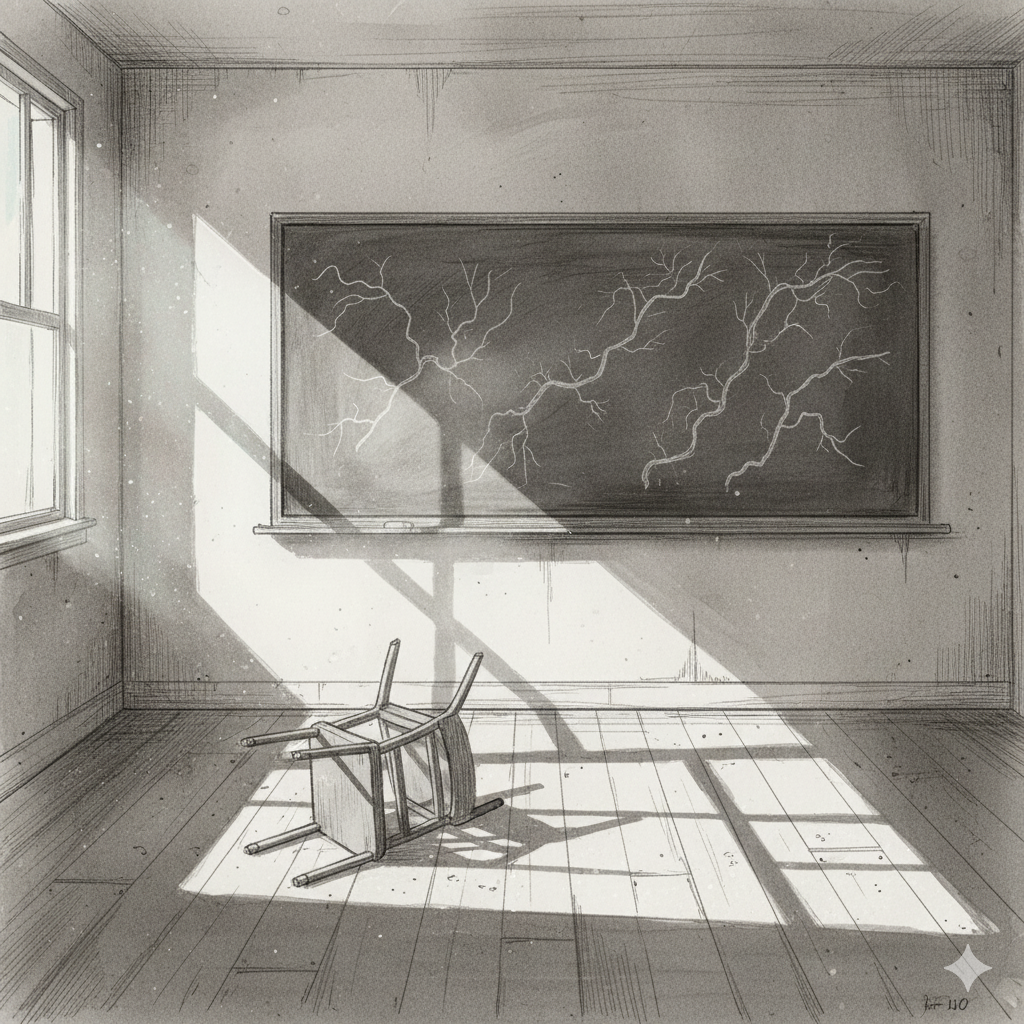
The prisoner got up and stretched out on top of the blankets, his feet toward the window. The light from the electric bulb shone straight into his eyes and he closed them at once.
“Why?” Daru repeated, standing beside the bed.
The Arab opened his eyes under the blinding light and looked at him, trying not to blink.
“Come with us,” he said. (Albert Camus)
In the middle of the night, Daru was still not asleep. He had gone to bed after undressing completely; he generally slept naked. But when he suddenly realized that he had nothing on, he hesitated. He felt vulnerable and the temptation came to him to put his clothes back on. Then he shrugged his shoulders; after all, he wasn’t a child and, if need be, he could break his adversary in two. From his bed he could observe him, lying on his back, still motionless with his eyes closed under the harsh light. When Daru turned out the light, the darkness seemed to coagulate all of a sudden. Little bv little, the night came back to life in the window where the starless skv was stirring gently. The schoolmaster soon made out the body lying at his feet. The Arab still did not move, but his eyes seemed open. A light wind was prowling around the schoolhouse. Perhaps it would drive away the cIouds and the sin would reappear.
Also Read: How It Feels to Be Colored Me by Zora Neale Hurston
During the night the wind increased. The hens fluttered a little and then were silent. The Arab turned over on his side with his back to Daru, who thought he heard him moan. Then he listened for his guest’s breathing, become heavier and more regular. He listened to that breath so close to him and mused without being able to go to sleep. In this room where he had been sleeping alone for a year, this presence bothered him. But it bothered him also by imposing on him a sort of brotherhood he knew well but refused to accept in the present circumstances. Men who share the same rooms, soldiers or prisoners, develop a strange alliance as if, having cast off their armor with their clothing, they fraternized every evening, over and above their differences, in the ancient community of dream and fatigue. But Daru shook himself; he didn’t like such musings, and it was essential to sleep. (Albert Camus)
A little later, however, when the Arab stirred slightly, the schoolmaster was still not asleep. When the prisoner made a second move, he stiffened, on the alert. The Arab was lifting himself slowly on his arms with almost the motion of a sleepwalker. Seated upright in bed, he waited motionless without turning his head toward Daru, as if he were listening attentively. Daru did not stir; it had just occurred to him that the revolver was still in the drawer of his desk. It was better to act at once. Yet he continued to observe the prisoner, who, with the same slithery motion, put his feet on the ground, waited again, then began to stand up slowly. (Albert Camus)
“Standing, he waited until the Arab had put on his cheche and sandals. They went into the classroom and the schoolmaster pointed to the exit, saying: “Go ahead.” The fellow didn’t budge. “I’m coming,” said Daru.”
Daru was about to call out to him when the Arab began to walk, in a quite natural but extraordinarily silent way. He was heading toward the door at the end of the room that opened into the shed. He lifted the latch with precaution and went out, pushing the door behind him but without shutting it. Daru had not stirred. “He is running away,” he merely thought. “Good riddance!” Yet he listened attentively. The hens were not fluttering; the guest must be on the plateau. A faint sound of water reached him, and he didn’t know what it was until the Arab again stood framed in the doorway, closed the door carefully, and came back to bed without a sound. Then Daru turned his back on him and fell asleep. Still later he seemed, from the depths of his sleep, to hear furtive steps around the schoolhouse. “I’m dreaming! I’m dreaming!” he repeated to himself. And he went on sleeping. (Albert Camus)

When he awoke, the sky was clear; the loose window let in a cold, pure air. The Arab was asleep, hunched up under the blankets now, his mouth open, utterly relaxed. But when Daru shook him, he started dreadfully staring at Daru with wild eyes as if he had never seen him and such a frightened expression that the schoolmaster stepped back. “Don’t be afraid. It’s me. You must eat.” The Arab nodded his head and said yes. Calm had returned to his face, but his expression was vacant and listless. (Albert Camus)
The coffee was ready. They drank it seated together on the folding bed as they munched their pieces of the cake. Then Daru led the Arab under the shed and showed him the faucet where he washed. He went back into the room, folded the blankets and the bed, made his own bed and put the room in order. Then he went through the classroom and out onto the terrace. The sun was already rising in the blue sky; a soft, bright light was bathing the deserted plateau. On the ridge the snow was melting in spots. Ttlc stones were about to reappear. Crouched on the edge of the plateau, the schoolmaster looked at the deserted expanse. He thought of Balducci. He had hurt him, for he had sent him off in a way as if he didn’t want to bc associated with him. He could still hear the gendarme’s farewell and, without knowing why, he felt strangely empty and vulnerable. (Albert Camus)
Also Read: A Carol and Other Poems by Rudyard Kipling
At that moment, from the other side of the schoolhouse, the prisoner coughed. Daru listened to him almost despite himself and then furious, threw a pebble that whistled through the air before sinking into the snow. That man’s stupid crime revolted him, but to hand him over was contrary to honor. Merely thinking of it made him smart with humiliation. And he cursed at one and the same time his own people who had sent him this Arab and the Arab too who had dared to kill and not managed to get away. Dary got up, walked in a circle on the terrace, waited motionless, and then went back into the schoolhouse. (Albert Camus)
The Arab, leaning over the cement floor of the shed, was washing his teeth with two fingers. Daru looked at him and said: “Come.” He went back into the room ahead of the prisoner. He slipped a hunting-jacket on over his sweater and put on walking-shoes. (Albert Camus)
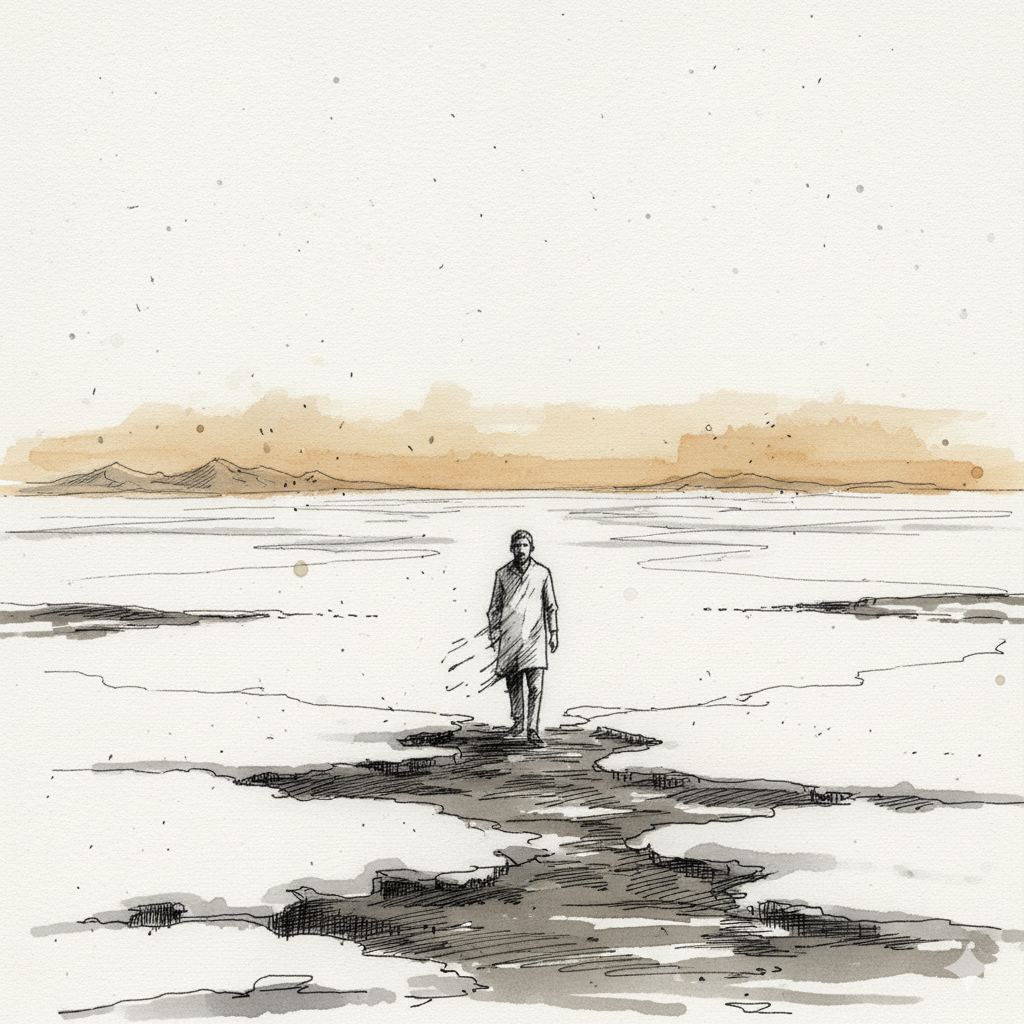
Standing, he waited until the Arab had put on his cheche and sandals. They went into the classroom and the schoolmaster pointed to the exit, saying: “Go ahead.” The fellow didn’t budge. “I’m coming,” said Daru. The Arab went out. Daru went back into the room and made a package of pieces of rusk, dates, and sugar. In the classroom, before going out, he hesitated a second in front of his desk, then crossed the threshold and locked the door. “That’s the way,” he said. He started toward the east, followed by the prisoner. But, a short distance from the schoolhouse, he thought he heard a slight sound behind them. He retraced his steps and examined the surroundings of the house, there was no one there. The Arab watched him without seeming to understand. “Come on,” said Daru. (Albert Camus)
They walked for an hour and rested beside a sharp peak of limestone. The snow was melting faster and faster and the sun was drinking up the puddles at once, rapidly cleaning the plateau, which gradually dried and vibrated like the air itself. When they resumed walking, the ground rang under their feet. From time to time a bird rent the space in front of them with a joyful cry. Daru breathed in deeply the fresh morning light. He felt a sort of rapture before the vast familiar expanse, now almost entirely yellow under its dome of blue sky. They walked an hour more, descending toward the south.
“Daru looked at the sky, the plateau and beyond the invisible lands stretching all the way to the sea. In this vast landscape he had loved so much, he was alone.”
They reached a level height made up of crumbly rocks. From there on, the plateau sloped down, eastward, toward a low plain where there were a few spindly trees and, to the south, toward outcroppings of rock that gave the landscape a chaotic look. (Albert Camus)
Daru surveyed the two directions. There was nothing but the sky on the horizon. Not a man could be seen. He turned toward the Arab, who was looking at him blankly. Daru held out the package to him. “Take it,” he said. “There are dates, bread, and sugar. You can hold out for two days. Here are a thousand francs too.” The Arab took the package and the money but kept his full hands at chest level as if he didn’t know what to do with what was being given him. “Now look,” the schoolmaster said as he pointed in the direction of the east, “there’s the way to Tinguit. You have a two-hour walk. At Tinguit you’ll find the administration and the police.
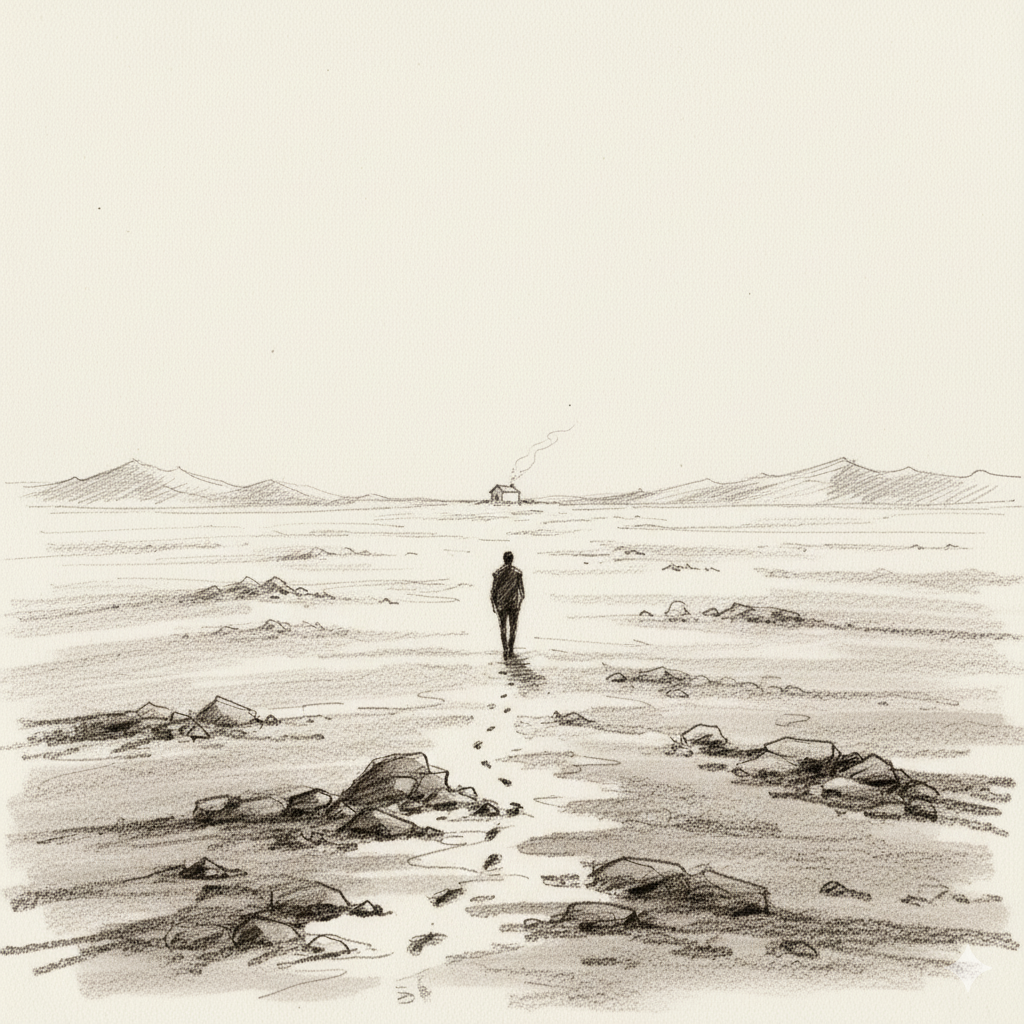
They are expecting you.” The Arab looked toward the east, still holding the package and the money against his chest. Daru took his elbow and turned him rather roughly toward the south. At the foot of the height on which they stood could be seen a faint path. “That’s the trail across the plateau. In a day’s walk from here you’ll find pasturelands and the first nomads. They’ll take you in and shelter you according to their law.” The Arab had now turned toward Daru and a sort of panic was visible in his expression. “Listen,” he said. Daru shook his head: “No, be quiet. Now I’m leaving you.” He turned his back on him, took two long steps in the direction of the school, looking hesitantly at the motionless Arab and started off again. (Albert Camus)
For a few minutes he heard nothing but his own step resounding on the cold ground and did not turn his head. A moment later however he turned around. The Arab was still there on the edge of the hill his arms hanging now, and he was looking at the schoolmaster. Daru felt something rise in his throat. But he swore with impatience, waved vaguely, and started off again. He had already gone some distance when he again stopped and looked. There was no longer anyone on the hill. (Albert Camus)
Also Read: Scrooge and the Spirit of Christmas Realized
Daru hesitated. The sun was now rather high in the sky and was beginning to beat down on his head. The schoolmaster retraced his steps at first somewhat uncertainly then with decision. When he reached the little hill he was bathed in sweat. He climbed it as fast as he could and stopped. Out of breath at the top. The rock-ficelds to the south stood out sharply against the blue sky but on the plain to the east a steamy heat was already rising. And in that slight haze Daru with heavy heart made out the Arab walking slowly on the road to prison. (Albert Camus)
A little later standing before the window of thc classroom the school master was watching the clear light bathing the whole surface of the plateau but he hardly saw it. Behind him on the blackboard among the winding French rivers sprawled the clumsily chalked-up words he had just read. “You’re handed over our brother. You will pay for this.” Daru looked at the sky, the plateau and beyond the invisible lands stretching all the way to the sea. In this vast landscape he had loved so much, he was alone. (Albert Camus)
Translated by Justin O’Brien
Photos Generated by Ai
He was a French-Algerian writer and philosopher known for exploring absurdism and human morality. His works include The Stranger and The Plague. He received the 1957 Nobel Prize in Literature for his profound humanist vision.


